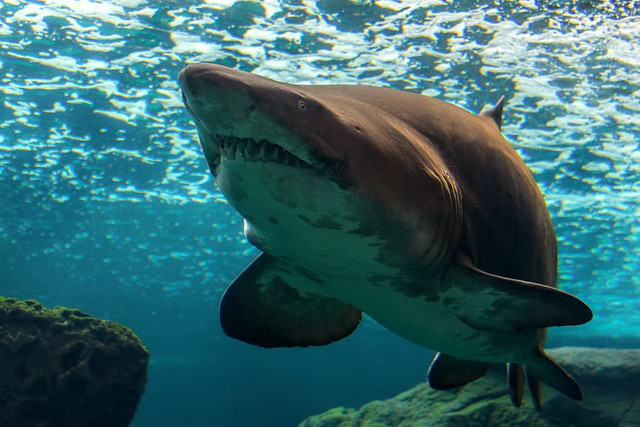Welcome to Word Buzz Wednesday, your go-to place for the most interesting words of the week. The latest: the turducken of sea hunting, another leak, forced gardening.
kleptopredation
“The term ‘kleptopredation’ was introduced to the world by marine biologists from the Institute of Marine Sciences at the University of Portsmouth in the UK, writing in the journal Biology Letters on Nov. 1.”
Ephrat Livni, “Kleptopredation is a new scientific term for super-sizing a meal at sea,” Quartz, November 2, 2017
Kleptopredation, says Quartz, is “when a predator eats prey that has just hunted and has a full belly—such that the predator ends up eating its prey’s prey as well.” The practice combines kleptoparasitism, food theft, and direct predation. The word comes from the Greek kleptes, “thief, a cheater,” and the Latin praedari, “to rob, to plunder.”
Paradise Papers
“The leak, called the Paradise Papers, was revealed when the International Consortium of Investigative Journalists and its dozens of collaborating news outlets on Sunday published investigations related to them.”
Jackie Wattles and Jill Disis, “What you need to know about the Paradise Papers,” CNN Money, November 6, 2017
The Paradise Papers refer to “13.4 million leaked files from offshore service providers and company registries obtained by German newspaper Süddeutsche Zeitung.” According to CNN Money, they “purport to show financial ties between Russia and a member of President Trump’s cabinet” and “how state-run Russian companies funded large investments in Twitter and Facebook.” In addition, the papers name the “world’s biggest businesses, heads of state and global figures in politics, entertainment and sport who have sheltered their wealth in secretive tax havens,” says The Guardian.
The “paradise” of the name might refer to Bermuda, the location of Appleby, the law firm the leak focuses on. The Panama Papers were another leak which centered on Mossack Fonseca, a law firm in Panama.
crofting
“Her father was a fisherman, and her family fed itself by crofting—age-old, small-plot, subsistence farming.”
Michael Kruse, “The Mystery of Mary Trump,” Politico Magazine, November/December 2017
The word croft is Old English in origin, and corresponds with the Dutch kroft, krocht, meaning “prominent rocky height, high and dry land, field on the downs,” according to the Oxford English Dictionary (OED).
lunch shaming
“He says he also likes provisions that expand opioid education in schools and end what’s called ‘lunch shaming’ by requiring schools to provide a meal to a student who requests one.”
“Wolf to Let Schools Bill Become Law, Despite Reservations,” U.S. News & World Report, November 3, 2017
Lunch shaming is the practice by some U.S. school districts of punishing students “because a parent or guardian has fallen behind on paying their child’s school meal bill.” Students are often publicly singled out and forced to wear wristbands, are assigned chores, and even have their meals taken away “from them after it has been served.”
gardening leave
“Because you’re good at what you do they put you on what’s called ‘gardening leave’ instead of making you work your notice.”
Nils Leonard, “How to take gardening leave,” GQ, November 4, 2017
According to the OED, gardening leave is a British term that refers to “suspension from work on full pay during a notice period, typically to prevent an employee from influencing the organization or acting to benefit a competitor before leaving.” The dictionary’s earliest citation is from 1981: “There are too many senior officers on permanent ‘gardening leave’.”
Why gardening? It’s not clear although some guess it’s because the employee “can’t come in to work and they can’t work for anyone else,” and all “they can do is work in or sit in their garden.”
Check out this post from Fritinancy for more on the term.
